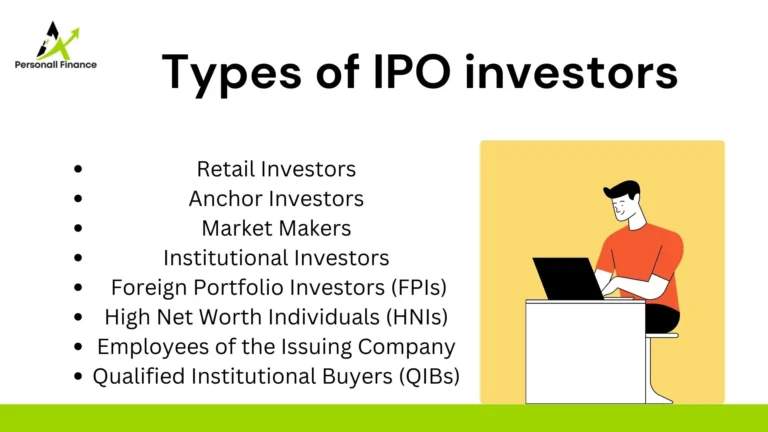Introduction
Do you have an interest in the share market? Make ready to go out on an adventure of discovery, then! Even though the share market may seem complicated, don’t worry; we’re here to help. Thank you for visiting the exciting world of the stock market, where investment and financial growth dreams come true! You’ve come to the perfect place if you’ve ever wondered how businesses make money, how people profit from investing, or even just what the share market is. We’ll break down the idea of the share market into easy chunks in this essay so even sixth-grade students can understand the fundamentals.

Table of Contents
ToggleTypes of share market
1. Primary market: In the primary market, companies issue Initial Public Offerings (IPOs) or Follow-on Public Offers (FPOs). An IPO is the first time a company goes public, allowing investors to buy shares and become partial owners of the company. An FPO, on the other hand, is when an already public company issues additional shares to raise more capital.
The primary market serves as a crucial avenue for companies to secure funds that can be used for various purposes such as expansion, research and development, debt repayment, and more. It also provides investors with an opportunity to invest in the growth potential of these companies at an early stage.
2. Secondary market: In India, the secondary market is a place where people trade things like parts of companies (stocks) and (bonds) that they didn’t get directly from the company. It’s like a marketplace where these items change hands between investors.
For example, imagine you own shares in an Indian company. If you decide to sell those shares to someone else, you’d do it in the Indian secondary market. This market includes stock exchanges like the National Stock Exchange (NSE) and the Bombay Stock Exchange (BSE). These are places where people buy and sell shares of various Indian companies, allowing ownership to be transferred from one person to another.
How share market work?
Imagine that you and your friends are joint owners of a bookstore. Even if the shop is performing well, you still need more money to improve it. You make the decision to ask people to become shareholders by purchasing “shares” of the business rather than borrowing money from them. In exchange, they receive a portion of the earnings and a voice in business decisions.
People can purchase and sell these shares on what resembles a huge marketplace called the stock market. Companies sell shares of their company, not books. You will acquire just a small part of the company when you buy a share.
What is the process for trading stocks?
Imagine having a tree that magically produces money from its leaves. You decide to give some “money leaves” to your friends. They pay highly for them, knowing that your tree will gradually develop a supernatural nature. If your tree fails to produce as much money as you had hoped, the value of the money it leaves may sometimes decline.
Similar to this, how well investors believe a business will perform affects how much a share of stock is worth. Share prices can increase in response to news about a company creating great new goods or making significant profits. Prices might decrease as a result of negative news, such as the company losing money or going through problems.
Stock Exchange: The Marketplace
Think of stock exchanges as huge marketplaces for the trading of shares. The two leading stock exchanges in India are the BSE (Bombay Stock Exchange) and the NSE (National Stock Exchange). If businesses want their shares to be traded on these exchanges, they have to conform to a variety of rules and regulations.
Regulatory body of share market
Similar to a referee in a soccer match, SEBI (Securities and Exchange Board of India) is an agency that ensures that everyone abides by the rules. When it comes to the stock market, SEBI acts as a superhero, protecting both investors and businesses.
Conclusion
Congratulations! You’ve taken your first steps into the exciting universe of the share market. Remember, the stock market isn’t a game, it’s a place where real businesses and real people come together. So, whether you’re dreaming of creating your own company one day or just want to understand how the world works, the stock market is an exciting place to explore! You now know that it’s a place where companies sell ownership shares, investors buy and sell these shares, and the market can go up or down based on various factors. Just like learning a new skill, becoming a successful investor takes time, practice, and learning from your experiences. So, whether you’re dreaming of owning a piece of your favorite company or simply want to grow your money, remember that knowledge and patience are your best allies in this journey. Happy investing!
Frequently asked question
A stock is a broader term that represents ownership in a company. On the other hand, shares are percentages of stock. You hold a percentage of the company’s equity if you own shares. Therefore, shares are like the individual pizza slices, while stocks are like the whole pie.
MRF Ltd. (Madras Rubber Factory Limited) was the most costly share in India.
FII stands for Foreign Institutional Investor.. It refers to institutional investors who make investments in the Indian stock market, including mutual funds, pension funds, and other foreign organizations. FIIs play a significant role in the Indian economy and financial markets.
Use these steps to invest in the stock market:
- Open a trading and Demat account with a registered stock brokerage.
- Before investing, research and evaluate the stocks.
- Establish your investing objectives and risk tolerance.
- Place buy orders on the equities you want to purchase.
- Regularly check on your investments and keep up with market movements.
No, the stock market is not a scam in and of itself. Investors can purchase and sell shares of publicly traded companies on this regulated marketplace. But there are risks, just like in any financial market. Scams can happen, but they are mostly committed by people or organizations looking to defraud investors. It’s important to invest through reputable channels and exercise due diligence to avoid scams and make informed investment decisions.




Good job sir